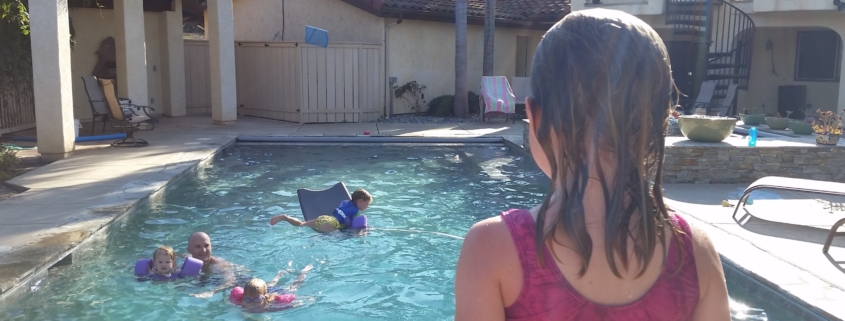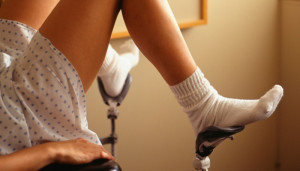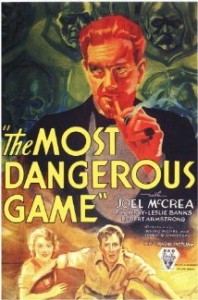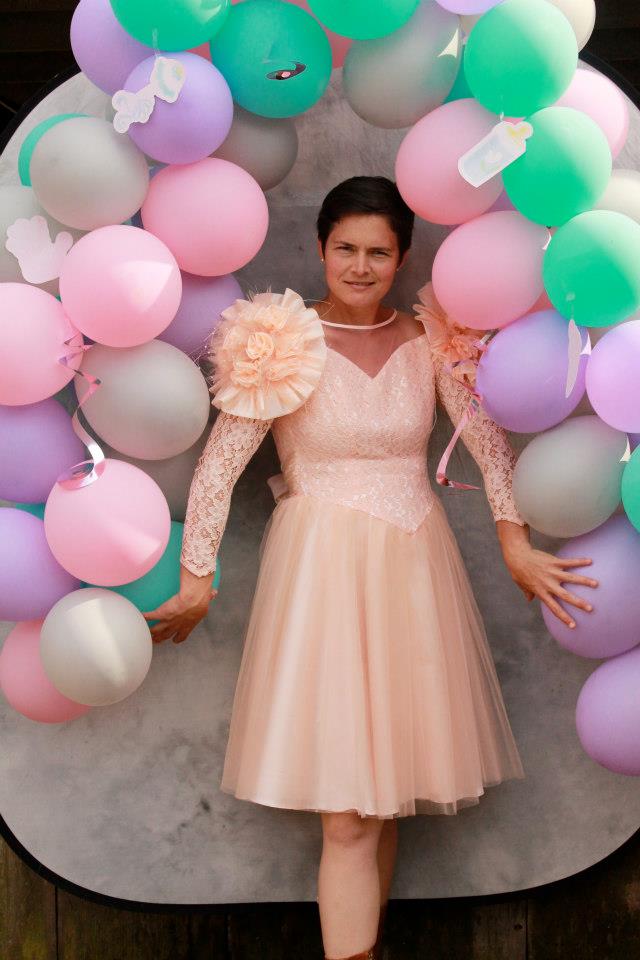Get Hot
I stopped going to the dentist around the time I started needing gynecological exams. It was on the waning end of adolescence that first I felt an OB crank me open with a speculum for a look-see. I have a general aversion to exposure; I was, and still am, wary of being peered into. Tender situations are to be avoided, though I know the effort is often futile. (In the dark of the movies, people still hear you sniff.) Still, I attempt to exert control where possible. While I resigned myself to (approximately) yearly pap smears, at the onset of adulthood I bought an electric toothbrush and reasoned I was free of professional dentistry for the rest of my life. The trouble is that dodging vulnerability is ill-advised from both hygienic and artistic standpoints.
Recently, a severe pain emanating from one of my molars trumped my dread of oral examination. We recently moved to Tustin, California, to live with my husband’s grandmother, Helen. I don’t know any dentists in our new city, so I made an appointment with Helen’s dentist. I say I don’t know any dentists, but what I mean is, I don’t know anyone here. I moved from a relatively progressive area where I felt I fit, to a place that’s been referred to as the Orange Curtain. I don’t start conversations with my stranger-neighbors, as I suspect I could become sweaty and upset. I remain indoors and avoid confrontation, as confrontation makes me feel vulnerable.
On the day of my appointment, I’d been working on an essay to send to my MFA mentor. My writing routine is an isolated one. It involves sitting alone at the dining room table. The air conditioner ticks on, blasts cool air into the house, then ticks off. I read and type. Read and delete. Type more and delete. Other than the intermittent gush of the AC, all is quiet. In the back yard it’s so hot that the cherry tomatoes split open, but looking out there from within my controlled climate, I see the glossy hibiscus leaves bat against one another silently and I can almost forget that the earth is roasting.
I spent that morning sitting inside, high on bottomless espressos, conducting a one-sided conversation. My writing was glib and clunky. My wheels spun, but I could catch no traction. This happens to me a lot.
When I arrived at the dentist, the receptionists were cheery and attentive. Bafflingly, they offered tiny bundt cakes at their desk, stacked in a basket, sweating against their Saran Wrap. I approached the counter to announce myself. I asked if the cakes were sugar-free. The receptionist tilted her head and shrugged, “No, they’re just regular cakes.”
“Ah! Delicious!” I said, because my past experience with cake has always been pleasant, and I didn’t want to appear critical of the fact that my new dentist gave out desserts after treating dessert-related cavities. (Was this some sort of test?) I wanted to appear breezy and unafraid.
Very soon I was asked to come back and “relax” in an exam chair. The dental practice was a single room, cut into cubicles like an office. I reclined, half blinded by an overhead exam lamp. The walls of my enclosure were decorated with the languid calligraphy of diplomas. There was also a long black and white photo of rows of students at an English boy’s school. They had fresh but somber faces. A TV in the upper corner was set to Fox News. Two men on either side of a split screen debated the scientific underpinnings of climate change. Behind them was the image of the wall of fire rearing up in northern California.
I was joined by a dental hygienist. I asked if we could switch the TV channel.
“Of course! What would you like to watch?” she said.
“Anything else you have,” I said. She put on HGTV. I looked back into the light, preferring the pain of blinding. The woman clipped a paper bib onto my chest. The dentist entered. He had an English accent. He was fast-talking and chipper.
“Hello, nice to meet you.” We shook hands. “How are you? How’s your day today?”
“I’m fine. I was working earlier. Now I’m here.”
“What’s your work?”
“I was trying to write an essay. It’s not going that well. I’m sort of stuck.”
“Oh yeah? What about?”
“Sharks.”
“Sharks!” He said, tucking his mask straps behind his ears. The chair vibrated and I was unfolded into a fully prone position. He and the hygienist gazed down at me, which I took as a signal that I should expose my teeth. I shut my eyes and opened. The recesses of my mouth were immediately lined with foam. A straw-shaped vacuum dipped under my tongue. Latex fingers touched my gums, moved my lips aside. A tiny metal pick clinked against the clefts of my molars.
Are you supposed to make eye contact with the dentist, I wondered. One benefit of the vaginal exam is that there’s no expectation to look into the doctor’s eyes. They’re occupied with jacking your vagina open like a flat tire, and you’re busy pretending you’re anywhere else. But the dentist’s face was about a foot from my own when he said, “I think they should all be killed.”
I raised my eyebrows. I examined his eyes, which examined my teeth.
I gulped, “Huh?”
“I think all the sharks should be killed. They’re a total menace. No good for anything. Do you know there are beaches where people are too scared to swim? That’s just crazy. I say, shoot the sharks.”
I gurgled.
“Also the bears. And mountain lions. And wolves. Hikers are getting attacked on the trails. Why should they have to fear animals when they’re trying to enjoy nature? They should be rounded up and killed.”
My arms twitched at my sides, but I dared not move more. The dentist was dragging a pick across my teeth. The sound was like a saw in my ears.
Did his cheekbones bunch into a smile under that mask? No joke was detectable. I looked to the hygienist. Her gaze was steady, her lashes straight and unfluttering. I was a prisoner at the hate parade. A tool began to whir. I felt it touch my tooth, and the whir became a piercing whine.
“You know that dentist who shot the lion?”
I swallowed.
“People really turned on him. He had to close his business, you know. I don’t have any problem with hunting. But I think these Safari hunts are missing the point.”
I allowed myself to hope “the point,” as he conceived it, would redeem him somehow, would prove I only misunderstood him. I was instructed to close my mouth around the hygienist’s little vacuum. I felt it draw all the moisture from my mouth, then all the air from my lungs.
“What they should do is let prisoners loose in the wildlife park. Then they should arm them and let them pick each other off. That’s fairer. And it would alleviate incarceration expenses.”
I might have blacked out a little.
The dentist worked on me for about forty-five minutes. During that time, unencumbered by an interlocutor, he filled the intimate air with his voice. He gave a scene-by-scene synopsis of Dances With Wolves, starring Kevin Costner. This, after asking his hygienist if she had ever seen it, and seeing her shake her head no. He waxed admiring on the subject of Field of Dreams, also starring Kevin Costner. He asked me if I liked it, and when I nodded (as much as possible without jostling the sharp object in my mouth) he said that it was weird that I liked it because it was a men’s movie. His proof? It had not made his wife cry. He proclaimed his disappointment in the movie Wyatt Earp, (again, Kevin Costner). He spoke at length about the gunfight at the OK Corral (Did I know it did not actually take place at the OK Corral?). He grew almost solemn when he praised the film Tombstone, where Val Kilmer portrays Doc Holliday, the eloquent dentist and deadly six-gun shooter.
I looked from one set of eyes to the other. I peered straight into the light and absorbed his confounding soliloquy. Whether or not what happened in the chair classified as a conversation is open to interpretation. It was an exercise in listening; the result of being temporarily freed of the ability to interject.
The light above me switched off. The throb in my sore eyes abated. He was done. The dentist left the room. My mouth was dry when I closed it. I stood, a little wobbly. It was awkward to be standing in the room, eye to eye with the hygienist, who had seen all my teeth and my gums, who had peered under my tongue and onto my stage-lit face for almost an hour. I felt strangely close to her.
Stranger still, when I saw the dentist at the reception counter—when he smiled and said “Good luck on your essay. I’m sure it’ll come out all right!”—I felt peculiar closeness to him. It’s true, he delivered verbal violence with uncanny calm. But in the midst of his speech, I found myself imagining that somewhere inside this semi-deranged Englishman there lived a boy who loved earnest myths of the American West. Who watched exotic, hairy-wristed gunfighters and earnest, stubbly Midwesterners and felt his lusty young heart beat. Who, discovering his penchant for science, considered how Doc Holliday could be a dentist and a daredevil, and felt the limits of his life recede. And when his adult mind lapsed into that liminal childlike space, he imagined he toted a six-gun rather than a sickle probe.
It’s a stretch, I know. This is the dream I had while I was forced to listen longer than I’d wanted. The dentist and I both picked careers that permit a one-sided conversation. But I should know better. What do we learn when we prattle on in isolation? What might we learn about others when we prostrate ourselves before them? What might we learn about ourselves? Sometimes we learn that we have HPV. (No, not me. This friend I have.) Sometimes we are told, reprovingly, that we are lucky we have very sound teeth. People also say some hateful shit. We can’t avoid exposure if we plan to understand, let alone write about, human beings with any nuance. If we are going to manage a credible response—an essay, a poem, an interpretive dance, a marching song—we need to settle in for a long listen. It might be hot, but we need to step outside.
Mary Birnbaum is editor of Lunch Ticket’s Diana Woods Memorial Prize in Nonfiction. She holds an MFA from Antioch. She has contributed to Lunch Ticket and The Week. Mary was the 2018 recipient of Disquiet International’s Nonfiction Fellowship and a finalist for Chattahoochee Review’s Lamar York Prize. She resides in Vista, California with her daughters and husband. If you like, you can find her on Twitter @ailishbirnbaum








